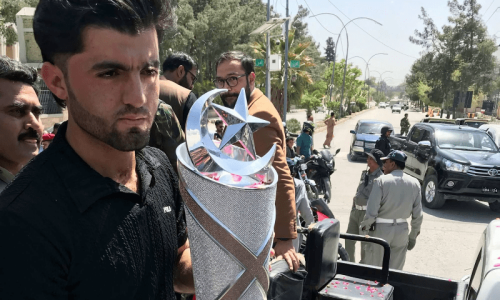IT may or may not be the beginning of yet another epic scandal in the power sector but the questions being raised over the revival of the Nandipur power project already have the makings of, at the very least, an unnecessary distraction. Whether a former managing director of Pepco is a whistleblower or a partisan critic, the facts brought forward by him demand some kind of explanation. If a project that was originally slated to cost roughly $330m has now ballooned to $575m it does not automatically suggest corruption has played some role, but it does indicate that a more detailed explanation for the cost hike ought to be given. The Ministry of Water & Power’s initial clarification does not amount to a full explanation and it is correct that the prime minister himself has now requested a detailed report on the project from the Planning Commission.
Yet, the circumstances in which Mr Sharif has waded in also merit some comment, especially since the Supreme Court has already taken up the issue. Since being sworn in as prime minister, Mr Sharif has, by his own admission, focused relentlessly on the energy crisis. The government’s priorities have been two-fold: one, close the supply-demand gap as quickly as possible; two, bring down the average cost of electricity over the medium term, a task impossible in the immediate future as prices must necessarily rise to eliminate subsidies. As with most governance decisions, however, the temptation to focus on short-term benefits at the expense of long-term costs is ever present. This is where Nandipur’s 425MW, and many other projects like it, comes in. The political expediency of more electricity soon means quickly turning to new power projects as part of the solution — although it is questionable how much of the energy crisis is an overall capacity issue — and whenever there is political urgency, somewhere or the other the rules get overlooked, bypassed or deliberately ignored.
The long history of cyclical crises in the power sector means there are many examples of controversy. The IPP policy of the mid-’90s was revisited by the PML-N government and led to legal complications and investor interest drying up. The previous PPP-led government also appeared to approach the energy crisis as principally about an issue of capacity; that led to the great RPP scandal. The new PML-N government has long promised to do things differently this time. Nandipur is an early test and a report in three days, as demanded by the prime minister, is not sufficient.











































